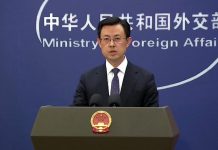
BANGKOK, Thailand – The Ministry of Industry has launched strict measures to reduce PM 2.5 pollution caused by sugarcane burning, with support from the Committee on Industry. Sugar mills are now required to prioritize the purchase of fresh sugarcane instead of burned crops to mitigate pollution and improve air quality. Farmers are being urged to cooperate with these efforts as part of the government’s broader pollution control strategy.
Sugarcane burning has been identified as a key contributor to PM 2.5 pollution, which poses health risks to the public and environmental challenges. The practice also affects the quality and market value of sugarcane, as burned crops produce less sweetness and weight, making them less competitive. Government officials are encouraging farmers to move away from burning practices, citing its negative impact on soil fertility and long-term agricultural productivity.
To support this transition, the government plans to offer financial incentives to farmers who deliver fresh sugarcane to mills. Additionally, state agencies are working to educate farmers about the benefits of reducing burning practices, with on-site visits and campaigns to raise awareness. Specific details on financial support are expected to be announced soon as efforts to reduce air pollution intensify.
The Sugarcane Farmers Association has expressed willingness to cooperate with the Ministry of Industry’s measures. The association has previously engaged in discussions with the Committee on Industry on the issue and supports the push to reduce sugarcane burning in line with national environmental policies. (NNT)










